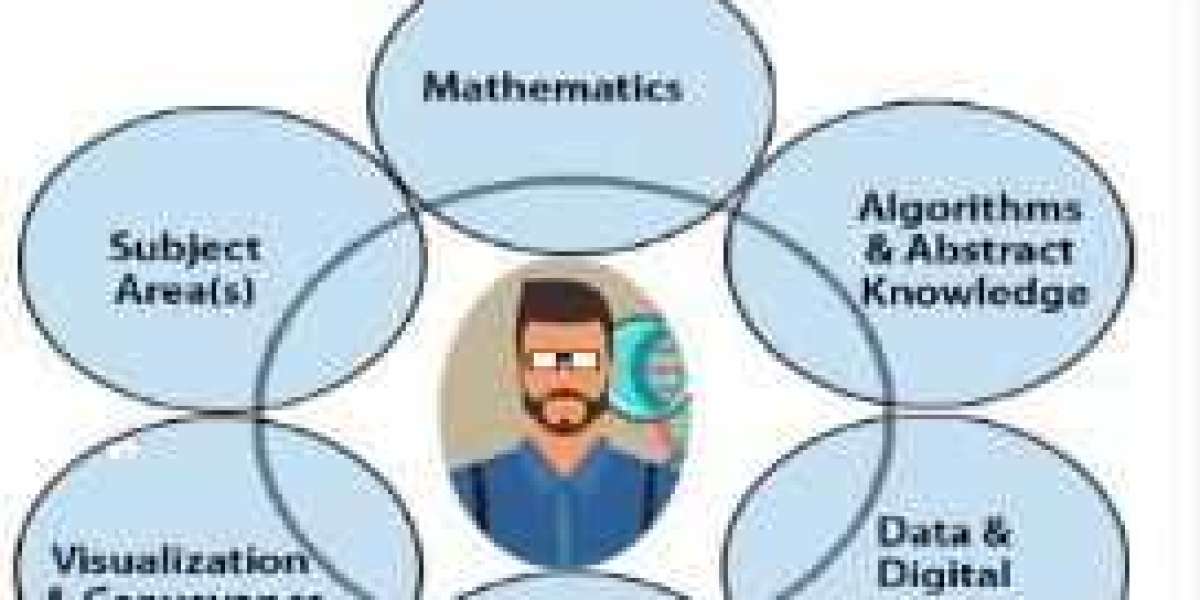Introduction
In today’s data-driven world, learning data analysis is an essential skill for anyone looking to excel in various industries. But what exactly is data analysis? It’s the process of inspecting, cleaning, transforming, and modeling data to discover useful information and support decision-making. Whether you're a student, professional, or someone curious about data, mastering this skill can open numerous doors.
Data analysis allows businesses to make informed decisions, improve efficiency, and gain insights into their operations. And the best part? You don’t need to be an expert to start. With beginner-friendly courses available online, you can dive into data analysis at your own pace. Let’s explore why learning data analysis is important and how you can get started.
Why You Should Learn Data Analysis
High Demand for Data Analysts
Data is everywhere, and organizations across industries are looking for professionals who can interpret and make sense of it. The demand for data analysts is skyrocketing, making it a lucrative career option for those entering the field.
Career Opportunities for Beginners
Starting a career in data analysis offers numerous opportunities. You can work in various industries like finance, healthcare, marketing, and more. As a beginner, you can find roles such as junior data analyst, business intelligence analyst, or even an entry-level data scientist.
Different Types of Data Analysis
Descriptive Data Analysis
This type involves summarizing historical data to understand what has happened over a specific period. It’s often the first step in any data analysis process.
Diagnostic Data Analysis
Diagnostic analysis digs deeper into data to figure out why something happened. It helps analysts understand the underlying causes of trends and patterns.
Predictive Data Analysis
Here, you’ll use historical data to forecast future outcomes. It’s widely used in business to anticipate market trends and customer behavior.
Prescriptive Data Analysis
This involves using data to suggest actions that can lead to desired outcomes. It’s more advanced but provides powerful insights for decision-making.
Key Skills Required for Data Analysis
Statistical Knowledge
Understanding basic statistics is crucial for analyzing data effectively. It helps in interpreting the significance of your data and making accurate conclusions.
Excel and Spreadsheet Skills
Excel remains one of the most accessible tools for data analysis, especially for beginners. Mastering its functions, like pivot tables and charts, will make your work easier.
Data Visualization
Being able to visualize data helps in presenting findings in an understandable way. Tools like Tableau and Power BI are often used for this purpose.
Programming Languages (Python, R)
For more advanced data analysis, programming languages like Python and R offer great flexibility and power. They allow you to work with larger datasets and perform complex analyses.
Choosing the Right Data Analysis Course
What to Look for in a Beginner Course
When choosing a course, consider factors like the curriculum, instructor qualifications, and course reviews. Look for courses that offer hands-on projects and cover essential tools.
Online vs. In-person Courses
Online courses provide flexibility, allowing you to learn at your own pace. In-person courses may offer more interaction with instructors and peers but might be less convenient for busy schedules.
Top Data Analysis Courses for Beginners
Coursera's “Data Analysis with Python”
A comprehensive introduction to data analysis using Python, ideal for those with no prior experience.
Udemy's “Introduction to Data Analysis”
A great starting point for beginners looking to learn data analysis with hands-on exercises and real-world examples.
edX’s “Foundations of Data Analysis”
Offered by top universities, this course covers the basics of data analysis and is suitable for absolute beginners.
Google Data Analytics Professional Certificate
Google’s certificate program provides a structured path for beginners to gain essential data analysis skills and land jobs in the field.
Benefits of Taking an Online Data Analysis Course
Flexibility and Self-Paced Learning
One of the biggest advantages of online learning is the flexibility it offers. You can learn at your own pace and fit the course around your schedule.
Access to Resources and Tools
Online courses often provide access to cutting-edge tools and software that will help you develop practical skills in data analysis.
Global Learning Community
You’ll have the chance to connect with learners from all over the world, exchanging ideas and insights as you learn together.
Tools and Software Covered in Beginner Data Analysis Courses
Excel
Most beginner courses will cover Excel, which is widely used for data manipulation and basic analysis.
SQL
Learning SQL (Structured Query Language) is essential for working with databases and extracting relevant data for analysis.
Python
Python is a powerful tool for data analysis, offering libraries like Pandas and NumPy to simplify the process.
R
R is another popular programming language for data analysis, particularly for statistical computing.
Understanding Data through Visualization
Why Visualization is Crucial
Visualizing data helps communicate insights in a way that’s easy to understand. It’s a vital skill for any data analyst.
Tools for Data Visualization
Tools like Tableau, Power BI, and even Excel are commonly used to create charts, graphs, and dashboards that display data trends and findings.
The Importance of Practical Projects
Hands-on Practice in Data Analysis
Theory alone isn’t enough. Practical projects give you real-world experience in handling data, making you more job-ready.
Working with Real-world Data
Courses that offer projects with real-world data are invaluable, as they provide a better understanding of how data analysis works in real scenarios.
Certification and Accreditation
Why Certifications Matter
Certifications validate your skills and make you stand out to employers. They also demonstrate your commitment to learning.
Recognized Certifications in Data Analysis
Certifications like the Google Data Analytics Professional Certificate or Microsoft Excel Specialist Certification are highly regarded in the industry.
Challenges Beginners Face in Learning Data Analysis
Data Overload
Beginners often feel overwhelmed by the sheer volume of data they have to work with. Learning how to filter and focus on relevant data is key.
Learning Curves in Tools and Software
Mastering new tools like Python or SQL can be challenging, but with consistent practice, beginners can overcome these hurdles.
Tips for Succeeding in a Data Analysis Course
Stay Consistent with Practice
Make sure you practice regularly. Data analysis is a skill that improves with continuous hands-on experience.
Join Online Communities
Being part of a learning community can provide support and encouragement. Platforms like Reddit or LinkedIn have active data analysis groups.
Ask Questions and Seek Help
Don’t be afraid to ask questions. Many online courses offer forums or communities where you can interact with instructors and fellow learners.








